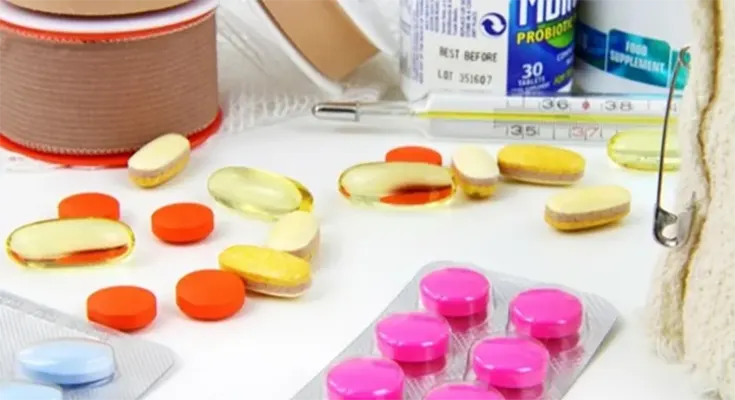The Persatuan Ahli Farmasi Indonesia (PAFI) is at the forefront of enhancing the pharmaceutical profession in Indonesia, primarily through its well-structured internship programs and strategic industry collaborations. These initiatives play a crucial role in bridging the gap between academic learning and real-world practice, offering valuable experiences and opportunities for professional growth. This article delves into the significance, structure, and outcomes of these programs and partnerships, shedding light on their impact on the pharmaceutical industry and the careers of aspiring pharmacists. pafimanna.org
The Significance of Internship Programs
Internship programs are a cornerstone of practical education, providing students and early-career professionals with firsthand experience in the pharmaceutical field. The Persatuan Ahli Farmasi Indonesia has established a robust framework for these programs, aiming to enhance the practical skills of its members while addressing the evolving needs of the industry.
- Practical Experience: Internships offer invaluable hands-on experience that complements theoretical knowledge acquired during academic studies. By working in real-world settings, interns gain exposure to daily operations, regulatory practices, and patient interactions, which are essential for their professional development.
- Skill Development: Through internships, participants develop critical skills such as pharmaceutical management, clinical assessment, and problem-solving. These skills are crucial for effective performance in various pharmaceutical roles, including clinical pharmacy, community pharmacy, and pharmaceutical research.
- Professional Networking: Internships facilitate networking opportunities with industry professionals, mentors, and peers. Building a network within the pharmaceutical community is beneficial for career advancement, offering insights into industry trends, job openings, and professional advice.
Structure and Implementation of Internship Programs
The Persatuan Ahli Farmasi Indonesia has designed its internship programs to ensure a comprehensive and enriching experience for participants. The structure of these programs typically includes several key components:
- Partnerships with Industry: PAFI collaborates with pharmaceutical companies, hospitals, research institutions, and academic organizations to offer diverse internship opportunities. These partnerships ensure that internships cover a wide range of pharmaceutical practices, from drug development and manufacturing to patient care and clinical research.
- Program Duration and Requirements: Internship programs usually span several months, allowing participants to immerse themselves in various aspects of the pharmaceutical field. Requirements for participation may include academic prerequisites, such as coursework in relevant subjects, and application procedures that assess candidates’ suitability for the program.
- Supervision and Mentorship: Each internship is supervised by experienced professionals who provide guidance, feedback, and support to interns. Mentorship is a critical component, offering interns the opportunity to learn from seasoned experts and gain insights into advanced practices and career pathways.
- Evaluation and Feedback: At the end of the internship, participants receive evaluations that assess their performance, skills, and overall contribution. Feedback from supervisors and mentors helps interns understand their strengths and areas for improvement, which is valuable for their future career development.
Industry Collaborations and Their Impact
Strategic collaborations between the Persatuan Ahli Farmasi Indonesia and various industry stakeholders play a significant role in shaping the pharmaceutical landscape. These collaborations enhance the quality and relevance of internship programs and contribute to the overall advancement of the industry.
- Collaborative Research and Development: PAFI’s partnerships with pharmaceutical companies and research institutions facilitate collaborative research and development projects. These collaborations enable members to engage in cutting-edge research, explore innovative drug therapies, and contribute to the advancement of pharmaceutical sciences.
- Professional Training and Development: Industry collaborations also involve joint efforts in professional training and development. Workshops, seminars, and continuing education programs organized in partnership with industry leaders provide members with the latest knowledge and skills required to excel in their careers.
- Industry Insights and Trends: Working closely with industry partners, PAFI members gain valuable insights into emerging trends, technological advancements, and regulatory changes within the pharmaceutical sector. This exposure helps them stay informed and adaptable to the evolving demands of the industry.
- Job Placement and Career Advancement: Industry collaborations often lead to job placement opportunities for internship graduates. By establishing connections with pharmaceutical companies and healthcare organizations, PAFI helps members secure employment and advance their careers in various pharmaceutical fields.
Outcomes and Benefits
The internship programs and industry collaborations facilitated by the Persatuan Ahli Farmasi Indonesia yield numerous benefits for both participants and the pharmaceutical sector.
- Enhanced Employability: Graduates of PAFI’s internship programs are well-prepared for the workforce, with practical experience and skills that enhance their employability. The hands-on training and professional networking opportunities provided during internships significantly boost their chances of securing desirable positions.
- Professional Growth: The exposure to diverse practices, mentorship, and feedback received during internships contribute to the professional growth of participants. They develop a deeper understanding of the pharmaceutical field, refine their skills, and build a strong foundation for their future careers.
- Industry Advancement: The collaboration between PAFI and industry stakeholders fosters innovation, research, and development within the pharmaceutical sector. By participating in research projects and staying abreast of industry trends, members contribute to the advancement of pharmaceutical practices and healthcare solutions.
- Stronger Industry Ties: The partnerships forged through internships and collaborations strengthen the ties between academia, industry, and professional organizations. This synergy fosters a more cohesive and dynamic pharmaceutical community, driving progress and addressing challenges in the sector.
Conclusion
The internship programs and industry collaborations orchestrated by the Persatuan Ahli Farmasi Indonesia are instrumental in shaping the future of the pharmaceutical profession in Indonesia. By providing practical experience, skill development, and professional networking opportunities, PAFI equips its members with the tools needed for successful careers. The strategic collaborations with industry stakeholders further enhance these initiatives, driving innovation, research, and professional growth. As PAFI continues to support and develop its programs, it plays a vital role in advancing the pharmaceutical field and contributing to the overall well-being of the healthcare system.





